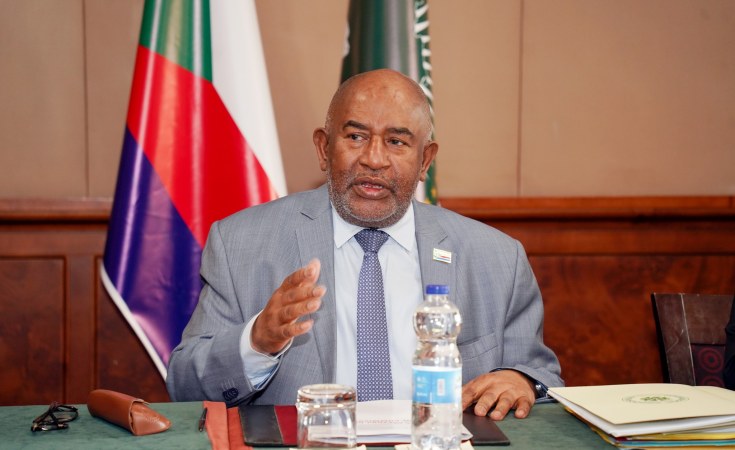Comoros President Azali Assoumani's recent decision to grant new powers to his son has raised concerns among critics, who view it as a step toward entrenching the family's control over the small African island nation.
In a decree that was published last week, the role in government of 40-year-old Nour El Fath Azali was reinforced, requiring that all decrees issued by ministers and governors must from now on be approved by the government secretary general before they are officially published and enacted.
Nour El Fath - who is Assoumani's eldest son - was appointed secretary general in July.
A government lawyer said the decree was merely a structural reform formalising the role of secretary general as coordinator of government affairs.
According to government spokeswoman Fatima Ahamada: "If it were not for Nour El Fath Azali, this decree would not have drawn any attention."
But critics say it elevates the role of Nour El Fath - who has been the private advisor to his father since 2019 - to that of de facto prime minister.
To display this content from X (Twitter), you must enable advertisement tracking and audience measurement.
Accept Manage my choices 'Monarchic practices'
Assoumani, a former military ruler who came to power in a coup in 1999, was re-elected as president in January after a disputed vote that was followed by two days of deadly protests.
Since then, he has been accused of growing authoritarianism.
According to the constitution of the Indian Ocean archipelago of three islands and about 850,000 people, the president is head of state and head of government.
With this new decree, Assoumani is giving his son "presidential and constitutional prerogatives that resemble monarchic rather than democratic practices," said exiled opposition politician Said Larifou.
For constitutional rights expert Mohamed Rafsandjani, it notably means that decrees issued by the governors of the Comoros' three islands must be approved by the secretary general and marks a significant increase in authority.


